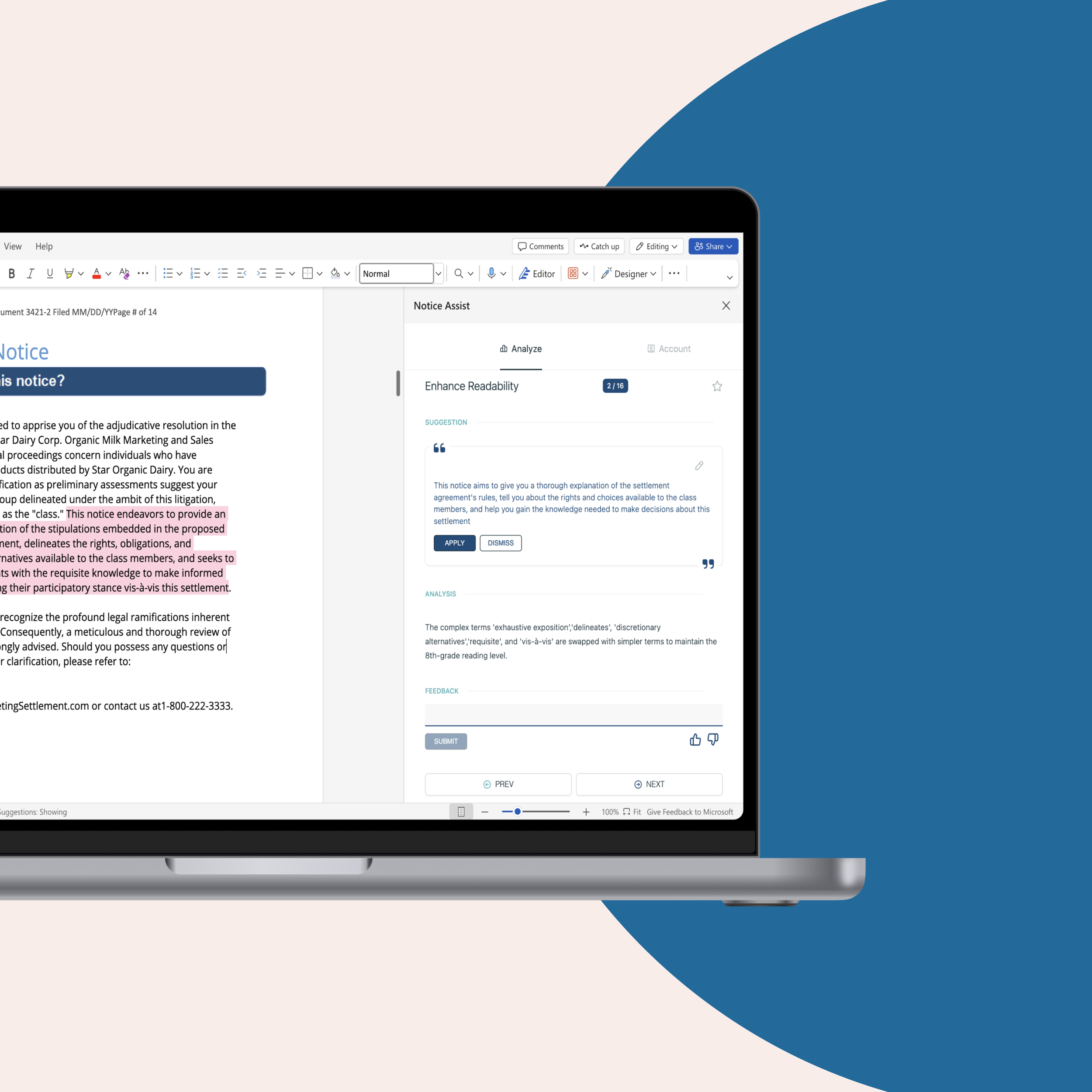Class Action Settlement Ethics - Talk Class Relief First, Fees Later
Perry Cooper
Senior Legal Editor Bloomberg BNA Class Action Litigation Report.
Counsel negotiating a settlement on behalf of a class should start with class relief before any talk of attorneys’ fees, a plaintiffs’ attorney says. That will ensure that the attorney avoids “the most obvious and most serious of ethical allegations: that you have traded off class relief and fees,” Jocelyn Larkin, executive director of the Impact Fund, told webinar attendees Aug. 20.
Defendants often try to negotiate class settlements with one number, saying they don’t really care how it’s allocated, she said. “Resist negotiating along those lines.” Tell defendants early that you want to discuss class relief first, and only then talk about fees and incentive awards, she said. She suggested getting the mediator’s help in keeping the discussions separate if possible.
“You want to create a very clean record to show you weren’t putting your own interests first, and giving up something the class could get,” Larkin said.
Setting parameters for the claims procedure also needs to be a priority during the negotiations, Larkin said. If the procedure is too complicated and class members can’t make claims easily, a great-sounding deal falls flat.
Do Your Research
Larkin also recommended that class counsel ensure they have adequate information to assess the case and the claims before they enter settlement talks.
The dangers of forging ahead too fast are illustrated by the Nissan LEAF settlement, where Chief Judge Alex Kozinski of the U.S. Court of Appeals for the Ninth Circuit got involved as an objector, she said.
There, a class of LEAF owners alleging misrepresentations about the car’s driving range and battery capacity reached a deal with the carmaker that gave them an extended warranty against battery capacity loss for either 60 months or 60,000 miles, whichever comes first Klee v. Nissan N. Am. Inc., 2015 BL 216909, C.D. Cal., No. 12-8238, final settlement approval 7/7/15. In exchange, the class members would release all claims against defendant Nissan North America Inc.
Kozinski argued that class members would get nothing out of the settlement because Nissan had already modified the warranty (15 CLASS 126, 2/14/14). He based his objection on the fact that plaintiffs’ counsel had done almost no discovery in the case, Larkin said. Instead they agreed with the defendants’ offer to hand over “confirming discovery” after a settlement was met. “Kozinski absolutely eviscerated them for that,” Larkin said.
Corporate defendants will always claim they have done nothing until they are caught through discovery, she said. And there, the plaintiffs’ counsel really didn’t know how strong their case was, which made it “absolutely inappropriate for them to be negotiating.”
Cornelia Dai, partner at plaintiffs’ firm Hadsell Stormer & Renick LLP in Pasadena, Calif., said the LEAF case is an example of the importance of objectors. Even though they can often be a nuisance and cause delay, sometimes they serve a purpose, she said. Because of Kozinski’s objection, the parties negotiated a new deal with better terms for the class, including replacement batteries for some class members.
Consider Interim Counsel Job
Dai also suggested that plaintiffs’ attorneys consider stepping up to be interim class counsel to act on behalf of a putative class early in a case. She acknowledged that this often means more work early in the litigation, but stressed its benefits. “It establishes that you are counsel for the class and that your relationship with class members is strong,” she said. It also gives the attorney a chance to show his or her experience and abilities, and to prove that he or she is “being aggressive in litigating the case to the court if other firms or attorneys show up later on,” she said. “It’s your chance to show early on the merits of your case,” Dai said.
Larkin and Dai spoke at a webinar on ethical questions in class action settlements hosted by the Impact Fund. The Berkeley, California-based Impact Fund provides non-profit legal support to class action plaintiffs.
Reproduced with permission from Class Action Litigation Report, 16 CLASS 947 (Aug. 8, 2015). Copyright 2015 by The Bureau of National Affairs, Inc. (800-372-1033) <http://www.bna.com>
To contact the reporter on this story: Perry Cooper in Washington











